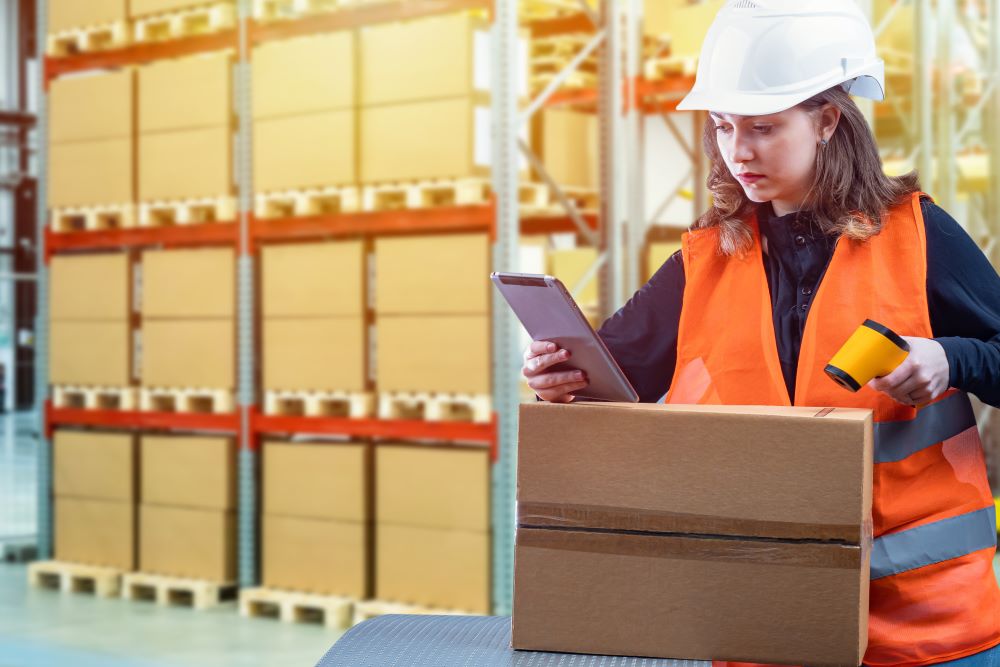
The 2023 Spring Budget unveiled a number of measures around authorisations, designed to simplify customs processes. In the latest of our series of trade explainers, the IOE&IT Daily Update sat down with Matt Vick, academy trade and customs specialist at the Institute of Export & International Trade (IOE&IT), to ask about the implications for anyone engaged in international trade.
What are authorisations and how do they affect international trade?
Authorisations are essentially permissions to gain facilitations that make a certain customs process easier. Typically, an individual or business might go to HMRC for an authorisation to apply for a specific customs procedure.
This might involve customs warehousing, which is a special procedure that allows you to bring in parts, suspend duty and VAT, manufacture a product, and pay any duty or VAT on the final manufactured product. In all, there are 42 authorisations you can apply for, including AEO (authorised economic operators) status, which certifies that an operator has met certain standards around customs compliance and health and safety, among other measures.
What changes have been introduced in the Spring Budget?
Government departments are not well set up in terms of sharing information, so there is a lot of duplication of effort by traders. The Spring Budget announced the creation of an umbrella scheme, under which existing authorisations will be grouped into different sub-sections. One of these will relate to AEO, another which will pull information from bank accounts, and another for simplifications and declarations at customs.
Within that, a business receiving authorisation would get access to inward processing, customs warehousing and temporary admission, among other things. This means organisations can apply for those authorisations once and use them for any of those purposes, rather than having to apply for each one individually.
One interesting area here is that currently if you have an authorisation and don’t use it, it might be revoked. Under this new system where people apply for a grouping, that will need to be rethought, as some individuals or businesses will only want to use one or two elements. There are also authorisation groups for transit, ports and wharves, and excise.
What is the thinking here?
The government is essentially recognising flaws in the current system. It refers to all these authorisations internally as Trusted Trader Schemes. The aim is to facilitate trade as much as possible, including routing back to HMRC, for the good actors, while also reducing the potential for fraud by clamping down on rogue operators.
The more people engage with such schemes, the more they will know about their operations and the relationship builds up from there. It can lead to fewer checks at borders and, in future, could even mean less information is needed on customs entries. The intention is to move customs processing away from the border as much as possible.
Why might people want to use authorisations?
The intention of special procedures is to make it easier to undertake certain activities within a supply chain, such as manufacturing or storage. But there are some caveats. You might want to store goods in a customs warehouse, which will allow you to suspend the duty and benefit from buying stock cheaper in the winter and hold it until the summer when it’s your peak sales season. But it’s possible the storage costs might have a negative impact overall on the business.
Some items will attract zero per cent duty, depending on where you’re trading with, and if you’re VAT registered you will be able to claim it back anyway. So it may be that you would be better off operating a just-in-time supply chain. Not every business needs special procedures, and it tends to be larger businesses that make greater use of them.
What is left to be resolved?
Authorisations themselves will remain in their present form, and it’s pretty much guaranteed that the umbrella system will come in. The only questions are around the detail, and what the new application process and any ongoing checklist will look like. For traders, it should be much easier and is likely to see a move away from paper forms to online portals. But we don’t have the full details yet.
When will this come into effect?
The implementation process is due to start in Autumn this year and conclude by 2025. There’s effectively an 18-month window during which businesses will need to pay attention to this.
What is your message to smaller businesses looking to get involved in international trade?
Exporting and importing can be a route to expanding operations and growing a business. A lot of polls show that people don’t start engaging in international trade because they perceive it as being too complicated. But if you break it down into small parts, it’s not that difficult. Most people can pick up what they need to know along the way, or get help from consultants or agents. It’s not that scary!



